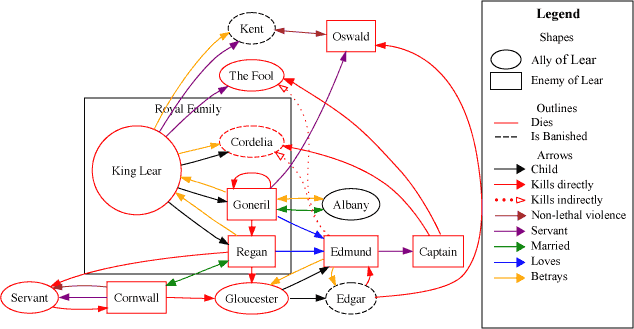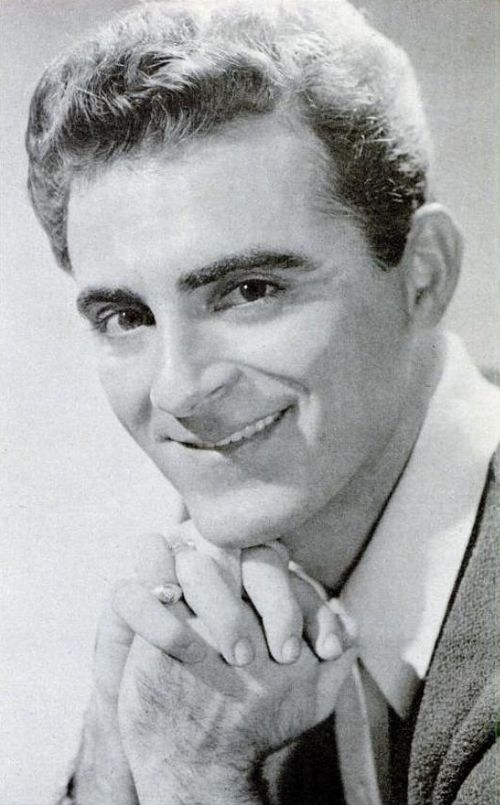
The intellectual world mourns the passing of Jonathan Lear, a towering figure in contemporary philosophy and psychoanalysis, who died on September 22 at his Chicago home at the age of 76. Professor Lear, the John U. Nef Distinguished Service Professor at the University of Chicago, was renowned for his singular ability to bridge disparate intellectual traditions, meticulously melding insights of ancient Greek thinkers with Sigmund Freud’s psychoanalytic theory. His expansive body of work profoundly reshaped our understanding of the human condition, delving into fundamental questions of love, hope, loss, morality, and gratitude with his customary wit and clarity.
Diagnosed with abdominal cancer, Professor Lear’s death marks the end of a prolific career dedicated to exploring what it means to be human from a “deeply humanistic point of view,” as Kay Long, a professor of psychiatry at Yale, astutely observed. He was an idiosyncratic and intellectually playful philosopher who consistently challenged established scholarly norms. His courage was evident in championing Freud, a figure often held in disregard within academia, and in his unorthodox research methods, such as studying resilience by visiting the Crow reservation in Montana—an ethnographic undertaking rarely associated with pure philosophical inquiry.
For nearly three decades, Professor Lear was a revered member of the University of Chicago faculty, leaving an indelible mark as a devoted scholar, mentor, and cherished friend. President Paul Alivisatos lauded his commitment to close reading and profound ability to marshal diverse evidence, calling him “an inspiration and guide to UChicago citizens.” His colleagues, students, and family remember him not only for his rigorous intellect and profound contributions but also for his infectious “intellectual joy,” his relentless commitment to truth-seeking, and his exceptional clarity. This article explores the initial chapters of his remarkable intellectual journey, examining how he forged a unique path intertwining ancient wisdom with modern psychological insight.

1. **Jonathan Lear: The Philosopher-Psychoanalyst Who Bridged Worlds**Jonathan Lear carved a unique niche as both a profound philosopher and a fully trained clinical psychoanalyst. His entire career was characterized by an ambitious project: to synthesize the enduring wisdom of classical Greek philosophy with the revolutionary insights of Freudian psychoanalysis. This intellectual fusion allowed him to approach fundamental questions about human flourishing, morality, and the very structure of meaning with a depth and originality that was, as Richard Moran of Harvard accurately described, “unclassifiable.”
His scholarship consistently transcended conventional academic boundaries, demonstrating a deep curiosity about the practical implications of theoretical thought. Professor Lear sought to understand the human psyche not just through abstract constructs, but through “lived experience.” This profound commitment to the experiential dimension underpinned his intellectual curiosity, propelling him to explore the elusive “inner world” and the therapeutic power of conversation in ways that few philosophers had dared to venture. He viewed philosophy and psychoanalysis not as competing disciplines, but rather as complementary lenses for a more complete picture of what it truly means to be human.
This audacious intellectual posture enabled Professor Lear to illuminate previously unexplored connections between ancient ethical frameworks and contemporary psychological understanding. He was convinced that the human soul, as conceived by philosophers, could not be fully grasped without considering its developmental history and the powerful, often hidden, unconscious motivations that shape it—a distinctively Freudian perspective he integrated seamlessly. His unparalleled ability to conceptualize new ideas while respectfully acknowledging established ones led to fresh interpretations of key psychoanalytic concepts, ensuring his work resonated widely across diverse academic fields.

2. **Early Foundations: Decoding Aristotle’s Pursuit of Knowledge**Professor Lear’s intellectual journey commenced with a rigorous and dedicated engagement with classical Greek philosophy, establishing a robust scholarly foundation in the works of Aristotle. His early scholarship made significant and lasting contributions to the interpretation of Aristotle’s logic, particularly through his book, “Aristotle and Logical Theory” (1980). This meticulous engagement with ancient thought laid a crucial groundwork for his later, more expansive and interdisciplinary inquiries into the human condition.
A cornerstone of his early work was his profound text, “Aristotle: The Desire to Understand” (1988), which has since become an “essential introduction” to the ancient philosopher for generations of students. In this seminal work, Professor Lear meticulously explored how the intrinsic longing for knowledge actively shapes and provides the very “contours of a flourishing life.” He was not only captivated by the brilliance of Aristotle’s deductive reasoning but also deeply impressed by the philosopher’s meticulous observations of the natural world, noting, for instance, Aristotle’s detailed descriptions of shepherds’ lives, the intricate hierarchy of bees, and the subtle roll of frost at dusk.
Professor Lear himself eloquently articulated this profound influence, writing in his 2017 collection of essays, “Wisdom Won From Illness,” that “What captured my imagination was not only the brilliance of his thinking, but also his commitment to life.” He explicitly stated his aspiration to emulate this unique method of living and thinking, actively seeking a way to engage with the larger world in a detailed and meticulous manner as a core philosophical practice. This early, deep immersion in Aristotle’s empirical and life-affirming philosophy subtly yet powerfully prepared him for the subsequent intellectual leap into the complex terrain of the human psyche, suggesting that a truly comprehensive understanding required an unblinking observation of both the external world and our internal landscapes.
3. **The Road to Freud: A Personal and Intellectual Awakening**The pivotal transition in Jonathan Lear’s career, moving from the rigorous study of ancient Greek logic to the nuanced explorations of modern psychoanalysis, was not merely an academic redirection. Instead, it was a profoundly personal odyssey, deeply rooted in a period of intense grief and subsequent self-discovery. This transformative shift began subtly in the early 1980s, during his tenure as a professor at the University of Cambridge. A seemingly casual mention of Sigmund Freud by a colleague unexpectedly triggered a powerful and deeply personal memory for Lear. This recollection brought him back vividly to the death of his father a few years prior, an emotionally raw event that had left him, in his own words, “overcome with sorrow.”
During this challenging period of mourning, at his father’s funeral, a conversation with his father’s cousin, the celebrated TV writer and producer Norman Lear, proved to be a pivotal moment. Norman Lear’s empathetic and pragmatic advice — “This would be a good time to talk to somebody about your feelings” — prompted Jonathan to seek out a psychologist. He found the therapeutic experience not only “therapeutic and intellectually absorbing,” providing much-needed solace and intellectual stimulation, but also deeply illuminating. However, at that initial stage, its direct connection to his burgeoning philosophical work was not immediately apparent.
It was the later, deliberate mention of Freud that finally solidified this connection in his mind, sparking a profound intellectual and personal synthesis. Professor Lear recognized with striking clarity that the human psyche, particularly the intricate “unconscious motivations and behaviors” that Freud had pioneered in exploring, presented an extraordinarily “fertile ground for a philosopher.” This realization ignited a series of fundamental questions that would guide his future work: “What would it mean for us to have an inner world, and how would it work?” and critically, “What is it about a conversation that might make it therapeutic?” This moment marked a decisive juncture, where his personal experience of grief, psychological healing, and intellectual curiosity converged, irrevocably setting him on an expansive path towards integrating philosophy with psychoanalysis.

4. **Training and Practice: Becoming a Psychoanalyst to Understand the Human Psyche**Driven by his burgeoning conviction that a true understanding of the human mind necessitated not just theoretical contemplation but also a direct, hands-on engagement, Jonathan Lear embarked on a remarkable and deeply unconventional journey: he made the deliberate decision to train as a clinical psychoanalyst. While holding a teaching position at Yale University in the mid-1990s, he formally enrolled at the Western New England Institute for Psychoanalysis in New Haven, Connecticut. This was an exceptionally unusual and bold move for an academic philosopher, a fact underscored by Kay Long, who noted that “It was very unusual to have someone train in psychoanalysis who had no background in mental health.”
His training regimen was both comprehensive and intensely personal, demanding an extraordinary commitment. As an integral part of the rigorous requirements for becoming a psychoanalyst, Professor Lear underwent his own analysis, immersing himself fully in the very process he sought to understand and elucidate intellectually. Simultaneously, he began seeing patients at a nearby Department of Veterans Affairs hospital, demonstrating an exceptional capacity to skillfully juggle his demanding clinical work—which included holding individual sessions and attending supervision—with his already significant academic responsibilities. This dual commitment profoundly underscored his deeply held belief that theoretical understanding, however brilliant, must always be informed and enriched by direct, tangible, “lived experience” in the clinical setting.
Professor Lear’s unwavering dedication to this unique form of empirical research vividly illustrated his conviction that one truly had to “do it to know it.” His profound willingness to engage directly in the practical application of psychoanalytic theory, treating real patients and sensitively exploring the intricate complexities of their inner worlds, stood as a powerful testament to his intellectual integrity and his relentless pursuit of holistic understanding. He was never content to merely theorize about the human condition; instead, he actively sought to engage with it in its most raw, vulnerable, and deeply personal forms, thereby bringing an invaluable clinician’s perspective to his already incisive philosophical inquiries. This extraordinary fusion of rigorous analytical thought and compassionate practical application would swiftly become a defining hallmark of his distinguished career.

5. **”Love and Its Place in Nature”: Redefining the Soul’s Development**In 1990, Jonathan Lear published “Love and Its Place in Nature: A Philosophical Interpretation of Freudian Psychoanalysis,” a truly seminal work that played a decisive role in bringing Freudian theory into serious and respected philosophical discussion. In this groundbreaking book, Professor Lear advanced a compelling argument: that traditional philosophers had often approached “the structure of the human soul in isolation from any consideration of how that structure came about.” He advocated forcefully for a more dynamic, developmental, and historically informed understanding of the soul, one that could be profoundly enriched by the insights gleaned from psychoanalysis.
Through the intricate arguments presented in “Love and Its Place in Nature,” Lear posited the provocative idea that “Psychoanalysis is itself a manifestation of love,” further suggesting that its very emergence onto the human scene was an integral and essential part of “love’s developmental history.” He meticulously demonstrated how fundamental Freudian concepts—such as the unconscious, repression, and transference—offered a crucial and previously underutilized framework for understanding the genesis, evolution, and ongoing complexities of the human psyche. By integrating these concepts, he argued, philosophical inquiry into the nature of the self could be immeasurably deepened and broadened, thereby challenging long-held intellectual segregations. This was a remarkably bold assertion, particularly within an academic climate that, at the time, largely dismissed Freud as unscientific or philosophically irrelevant.
The publication of the book was met with significant and widespread critical acclaim, cementing Lear’s reputation as a philosopher of extraordinary intellectual courage and insight. Christopher Lehmann-Haupt, in his discerning review for The New York Times, lauded “Love and Its Place in Nature” for not only offering “a form of spiritual nutriment for the self” but also for defining that self “with a clear profundity that few readers will have encountered before.” This overwhelmingly positive reception unequivocally solidified Lear’s standing as a philosopher uniquely capable of deeply engaging with complex Freudian thought and articulating its profound and far-reaching implications for a comprehensive understanding of human experience, thereby setting a formidable intellectual stage for his continued, groundbreaking contributions to both philosophy and psychoanalysis.

6. **Jonathan Lear’s Unwavering Defense of Freud in Academia**Professor Lear’s steadfast intellectual embrace of Sigmund Freud positioned him distinctly at odds with a significant portion of the academic world, where psychoanalysis had largely fallen out of favor. Despite this prevailing skepticism, he became a leading voice in rehabilitating Freudian thought within serious philosophical discussion, a testament to his intellectual courage and conviction. He saw in Freud a profound explorer of the human condition whose insights deserved rigorous engagement, not dismissal.
His advocacy was not merely theoretical; in 1995, he penned a lengthy and influential article for *The New Republic* titled “The Shrink Is In,” directly confronting the academic disregard for psychoanalysis. In this piece, Professor Lear argued that “Freud is a deep explorer of the human condition, working in a tradition which goes back to Sophocles and which extends through Plato, Saint Augustine and Shakespeare to Proust and Nietzsche.” This bold assertion positioned Freud within a revered lineage of thinkers who grappled with the complexities of human existence.
Further cementing his commitment, Professor Lear’s 2005 book, *Freud*, offered a nuanced and empathetic portrayal of the psychoanalyst’s contributions. He highlighted Freud’s democratic approach to understanding the human mind, noting that “Freud was willing to listen to anyone who came into his office. He listened to ordinary people and, on the basis of what he heard, he transformed our conception of the human.” This underscored Lear’s belief in the universal applicability and profound impact of Freudian insights, derived from the direct engagement with lived experience.
Indeed, Richard Moran of Harvard University acknowledged that, more than any other philosopher of his generation, Professor Lear “brought Freud and psychoanalysis into contemporary philosophical discussion, not only on the level of theoretical reconstruction, but also in the examination of the good life, and the crises that threaten to disable the psyche.” Kay Long, a professor of psychiatry at Yale, further attested to the unparalleled nature of Lear’s “deep and wide-ranging work, integrating philosophical and psychoanalytic ideas” within the history of psychoanalysis.

7. **”Radical Hope”: Ethics in the Face of Cultural Devastation**Among Professor Lear’s extensive bibliography of eleven books, *Radical Hope: Ethics in the Face of Cultural Devastation*, published in 2006, stands out as his most widely recognized work. This seminal text explored a deeply resonant ethical problem for all humanity: how to maintain a meaningful life when the very cultural concepts that define one’s understanding of self and action are threatened with destruction. It addressed a question of profound relevance to contemporary challenges of identity and meaning in a rapidly changing world.
The impetus for *Radical Hope* came from a poignant quote by Chief Plenty Coups of the Apsáalooke, or Crow Nation. Chief Plenty Coups, witnessing the devastating loss of his people’s traditional way of life, famously remarked, “After this, nothing happened.” Professor Lear recounted that these words “lodged within me and never left,” compelling him to embark on a deep intellectual and ethnographic inquiry to understand their profound significance. The book became a deeply personal attempt to grapple with these unsettling words.
To research this complex subject, Professor Lear embarked on several unconventional research trips, spending time on the Apsáalooke Reservation in Montana. His journey began with a call to Timothy McCleary, the dean of academics at Little Big Horn College, who noted the unusual nature of a philosopher seeking such direct, immersive research. McCleary observed Professor Lear as “a very kind person, very humble, which is something that Crow people respect about anybody,” adding that he was “inquisitive and really wanted to understand.”
Through his immersive experience and rigorous ethical thought, Professor Lear discerned a unique form of hope among the Crow people, one forged in the crucible of immense suffering and cultural upheaval. He concluded that “It is beyond question that the hope was a remarkable human accomplishment — in no small part because it avoided despair.” Robert Pippin, Professor Lear’s colleague, fittingly described *Radical Hope* as “a book for our times, when the possibility of hope in the future seems an ever more difficult possibility,” reflecting its enduring relevance.

8. **Facilitating Indigenous Scholarship: The Neubauer Collegium and Cultural Exchange**Professor Lear’s profound impact extended beyond his individual scholarship and clinical practice into significant institutional leadership and cultural advocacy. His dedication to fostering interdisciplinary collaboration and celebrating diverse cultural narratives was particularly evident during his tenure as the inaugural Roman Family Director of the Neubauer Collegium for Culture and Society, a role he held from 2014 to 2022. This position provided a platform for him to actively shape the academic and cultural landscape of the University of Chicago.
One of Professor Lear’s proudest achievements as director was his successful facilitation of collaboration between University of Chicago faculty and Native scholars and artists. This initiative exemplified his commitment to bridging academic disciplines with lived cultural experience, recognizing the invaluable perspectives that Indigenous communities bring to intellectual inquiry. It was a tangible expression of his belief in the power of conversation and mutual understanding across different traditions.
This collaborative spirit culminated in a landmark event: the 2020 exhibition, *Apsáalooke Women and Warriors*. This significant cultural display was presented jointly by the Neubauer Collegium and the Field Museum of Natural History. Notably, it marked a historic milestone as the first large-scale exhibition in the Field Museum’s history to be curated by a Native American, reflecting Professor Lear’s profound dedication to elevating Indigenous voices and ensuring their stories were told with authenticity and respect.
President Emeritus Hanna Holborn Gray commended Lear’s unparalleled commitment to the University’s institutional culture. She noted his exemplary openness, toleration, good will, and courtesy toward all, emphasizing that for him, “it was the quality of the question, and the substantive quality of the argument, that mattered.” This ethos underpinned his ability to foster meaningful cultural and academic exchanges, making the Neubauer Collegium a vibrant hub under his leadership.

9. **”Imagining the End”: Mourning, Gratitude, and the Commitment to Meaningfulness**Professor Lear’s later intellectual endeavors continued to grapple with some of humanity’s most fundamental questions, culminating in his final book, *Imagining the End: Mourning and Ethical Life*, published in 2022. In this profound work, he distilled years of contemplation on the future, the inevitable end of life, and the potential dissolution of purpose as we understand it. The book is a testament to his unwavering pursuit of meaning in the face of existential uncertainty, a hallmark of his entire philosophical career.
*Imagining the End* meticulously expounds upon the critical importance of mourning and gratitude as essential components of an ethical life. These were not merely abstract concepts for Lear; they were deeply felt human experiences that held profound philosophical implications. He further illuminated these powerful ideas in his 2024 Ryerson Lecture, thoughtfully titled “Gratitude, Mourning, Hope and Other Forms of Thought,” sharing his insights with a broader audience in one of his last major public addresses.
During his Ryerson Lecture, Professor Lear offered a deeply moving articulation of gratitude’s role in human existence. He stated, “We do not know when or how we will die. Gratitude, I want to say, is a way of making a commitment to meaningfulness—that this gift has mattered, and that it shall continue to matter in the midst of a life that we cannot fully comprehend.” This perspective beautifully encapsulated his lifelong quest to affirm the value of life, even amid its inherent unpredictability and limitations.
Through *Imagining the End* and his accompanying lectures, Lear provided a framework for understanding how engaging with sorrow and cherishing what has been given can anchor us. He posited that these acts of reflection and appreciation enable us to maintain a sense of purpose and connection, affirming the enduring significance of our experiences even as we confront the ultimate unknown. His final published work thus serves as a powerful meditation on living well, right up to the very end.
10. **A Cherished Mentor and Public Intellectual: Jonathan Lear’s Enduring Legacy**Jonathan Lear’s profound influence was not solely confined to his prolific writings; it extended deeply into his role as a revered educator and mentor to a generation of scholars. Many students were drawn to the University of Chicago specifically by his formidable intellectual reputation, his unwavering commitment to deep questioning, and his exceptional ability to inspire others to pursue similar intellectual rigor. His presence created an environment where complex ideas could be explored with both seriousness and joy.
His former students offer vivid testaments to his profound impact. Jonny Thakkar, an associate professor at Swarthmore College, described Lear as possessing “a kind of electricity about him, an energy in his eyes,” and being “irrepressibly idealistic about the life of the mind.” Francey Russell, an assistant professor at Barnard College, unequivocally stated, “There was no one else like him” when recalling her decision to study with Lear. Amy Levine, another former student, noted that his class on philosophy and psychoanalysis “genuinely changed my life,” opening up new avenues of thought she didn’t realize were permissible for a professional philosopher.
Colleagues also lauded his unique gifts. Professor Matthew Boyle highlighted Lear’s exceptional quality of helping others discover their “own best thoughts,” noting that he “loved to listen to other people talk about subjects they knew well.” This generosity of interest, Boyle added, “helped many people find their voices.” This collaborative and supportive approach fostered a vibrant intellectual community, where ideas were nurtured and critical thinking was paramount.
Beyond the university, Professor Lear was a prominent public intellectual, widely recognized for his remarkable ability to articulate immensely difficult and demanding ideas with “absolute clarity, with ease of expression, and with real intellectual joy,” as remarked by his colleague Timothy Harrison. Richard Levin, president emeritus of Yale, captured Lear’s essence by stating, “Jonathan embodied the ideal of truth-seeking. Relentless, rigorous and open-minded, he led us all to new insights about everything he studied.” His love for the University of Chicago, which he ranked among history’s greatest institutions, stemmed from its culture of courageous thinking and conversation.
Professor Lear’’s life was also marked by a cherished capacity for friendship and human connection. He was remembered as a “great raconteur” with a fondness for Bob Dylan and a gin martini, and known for sharing joyful stories. Robert Pippin fondly recalled, “I’ve not laughed longer and harder with anyone than with Jonathan. He was a person who really appreciated the importance of keeping in touch, of cultivating a friendship.” This blend of profound intellect, compassionate mentorship, and genuine human warmth solidifies Jonathan Lear’s legacy as a truly unique and irreplaceable figure in modern thought, whose insights will continue to illuminate the human condition for generations to come.






